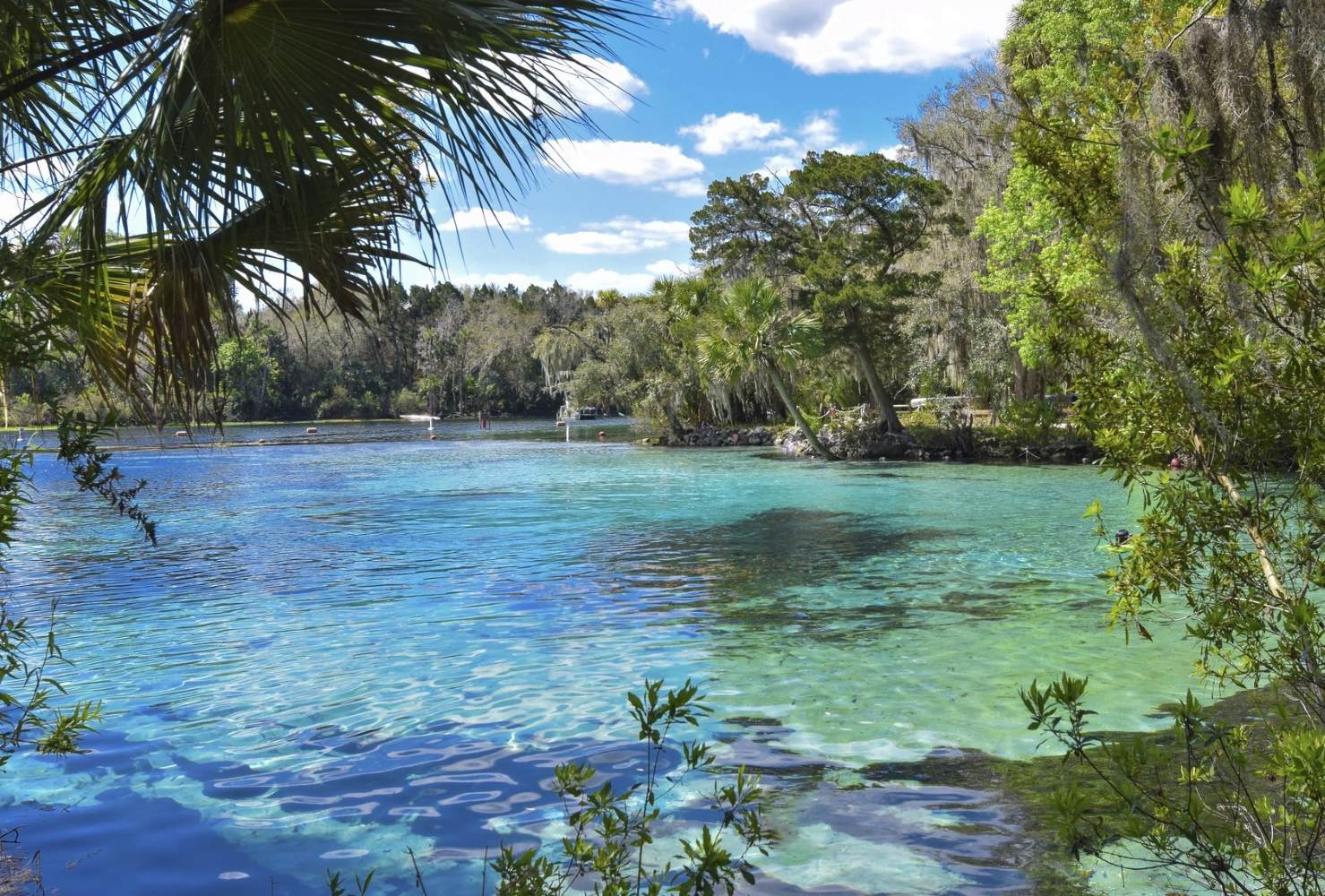
Have you ever wondered what makes the St. Johns River so special? This majestic waterway, stretching over 310 miles, is one of Florida's most iconic rivers. Flowing north, unlike most rivers, it offers a unique ecosystem teeming with wildlife and rich history. From its origins in the marshes of Indian River County to its mouth at the Atlantic Ocean, the St. Johns River has been a lifeline for communities, providing water, transportation, and recreation. Whether you're a nature enthusiast, history buff, or just curious, these 35 great St. Johns River facts will give you a deeper appreciation for this natural wonder. Dive in and discover what makes this river a true gem of the Sunshine State!
The St. Johns River: A Natural Wonder
The St. Johns River, located in Florida, is one of the most unique rivers in the United States. Its beauty and ecological significance make it a fascinating subject. Here are some intriguing facts about this remarkable waterway.
-
The St. Johns River is the longest river in Florida, stretching over 310 miles.
-
Unlike most rivers, the St. Johns flows northward, a rare trait shared by only a few rivers worldwide.
-
The river's source is a marshy area in Indian River County, known as Blue Cypress Lake.
-
It empties into the Atlantic Ocean near Jacksonville, Florida.
-
The St. Johns River is one of the few rivers in the U.S. designated as an American Heritage River.
Historical Significance
The St. Johns River has played a crucial role in Florida's history, serving as a vital transportation route and a source of sustenance for indigenous peoples and settlers.
-
Native American tribes, including the Timucua, lived along the river for thousands of years.
-
Spanish explorers, such as Ponce de León, navigated the river in the 16th century.
-
The river was named "Rio de San Juan" by Spanish settlers in honor of St. John the Baptist.
-
During the Civil War, the river was a strategic route for transporting troops and supplies.
-
Steamboats were a common sight on the St. Johns River in the 19th century, facilitating trade and travel.
Ecological Importance
The St. Johns River is a vital ecosystem supporting a diverse range of flora and fauna. Its health is crucial for the surrounding environment.
-
The river is home to over 200 species of fish, including bass, catfish, and shad.
-
Manatees, an endangered species, frequently inhabit the river's warm waters.
-
The river's wetlands provide critical habitat for numerous bird species, such as herons and egrets.
-
Alligators are commonly found in the St. Johns River, thriving in its freshwater environment.
-
The river's estuaries support a variety of marine life, including crabs, shrimp, and oysters.
Recreational Activities
The St. Johns River offers a plethora of recreational opportunities for locals and tourists alike. Its scenic beauty and abundant wildlife make it a popular destination.
-
Boating is a favorite activity on the river, with numerous marinas and boat ramps available.
-
Fishing enthusiasts flock to the St. Johns River for its abundant fish populations.
-
Kayaking and canoeing provide a peaceful way to explore the river's natural beauty.
-
The river hosts several annual events, including fishing tournaments and boat parades.
-
Birdwatching is a popular pastime along the river, with many species to observe.
Unique Features
The St. Johns River boasts several unique features that set it apart from other rivers. These characteristics contribute to its charm and allure.
-
The river has a very slow flow rate, moving at an average speed of just 0.3 miles per hour.
-
It has a series of lakes along its course, including Lake George, the second-largest lake in Florida.
-
The river's water levels are influenced by tides, despite being located inland.
-
The St. Johns River is one of the few rivers in the world with a blackwater section, where tannins from decaying vegetation color the water dark brown.
-
The river's basin covers approximately 8,840 square miles, making it one of the largest in Florida.
Conservation Efforts
Efforts to preserve and protect the St. Johns River are ongoing, ensuring its health and vitality for future generations.
-
The St. Johns River Water Management District oversees the river's water quality and usage.
-
Numerous environmental organizations work to protect the river's ecosystem, including the St. Johns Riverkeeper.
-
Restoration projects aim to improve water quality and restore natural habitats along the river.
-
Public awareness campaigns educate residents and visitors about the importance of preserving the river.
-
Volunteers participate in clean-up events to remove trash and debris from the river and its banks.
Cultural Impact
The St. Johns River has left an indelible mark on the culture and identity of the region. Its influence can be seen in various aspects of local life.
-
The river has inspired countless artists, writers, and musicians, contributing to Florida's rich cultural heritage.
-
Several towns and cities along the river, including Jacksonville and Palatka, owe their development to the river's presence.
-
The river is a popular subject in local folklore and legends, adding to its mystique.
-
Festivals and events celebrating the river's significance are held throughout the year.
-
The St. Johns River continues to be a source of pride and inspiration for the people of Florida.
The River's Legacy
The St. Johns River stands as a testament to nature's beauty and resilience. Flowing north for 310 miles, it's one of the few rivers in the world that does so. This river supports a diverse ecosystem, home to manatees, alligators, and countless bird species. Its historical significance is equally impressive, having been a vital waterway for Native Americans, European settlers, and modern-day Floridians.
Recreational activities like boating, fishing, and wildlife watching make it a beloved spot for locals and tourists alike. The river's unique features, such as its slow flow and blackwater, add to its charm and mystery. As we appreciate the St. Johns River, let's also commit to preserving it for future generations. This natural wonder deserves our respect and protection, ensuring it continues to thrive and inspire.
Was this page helpful?
Our commitment to delivering trustworthy and engaging content is at the heart of what we do. Each fact on our site is contributed by real users like you, bringing a wealth of diverse insights and information. To ensure the highest standards of accuracy and reliability, our dedicated editors meticulously review each submission. This process guarantees that the facts we share are not only fascinating but also credible. Trust in our commitment to quality and authenticity as you explore and learn with us.


